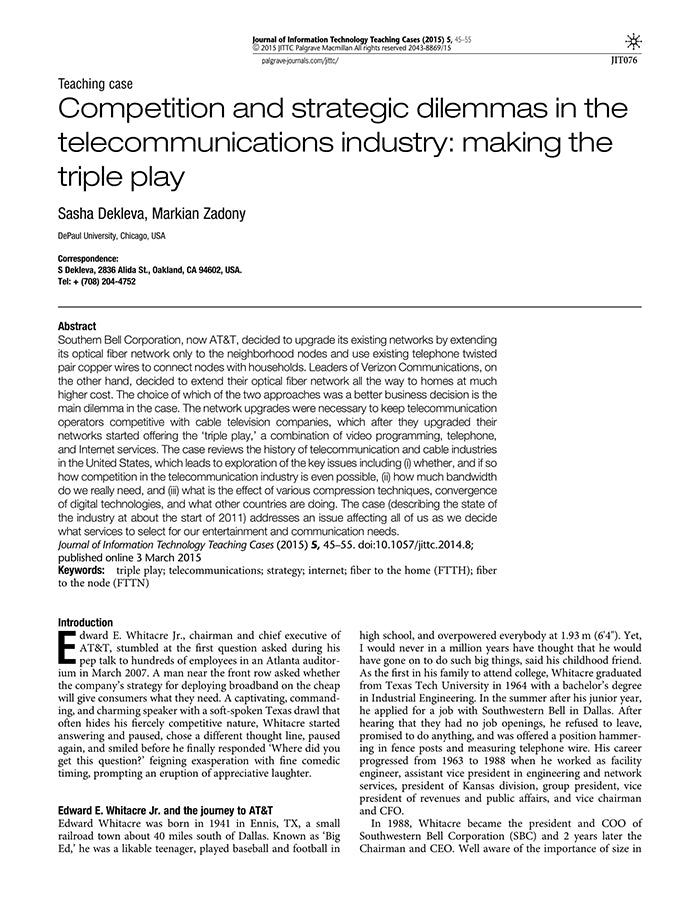Competition and Strategic Dilemmas in the Telecommunications Industry: Making the Triple Play
受取状況を読み込めませんでした
Southern Bell Corporation, now AT&T, decided to upgrade its existing networks by extending its optical fiber network only to the neighborhood nodes and use existing telephone twisted pair copper wires to connect nodes with households. Leaders of Verizon Communications, on the other hand, decided to extend their optical fiber network all the way to homes at much higher cost. The choice of which of the two approaches was a better business decision is the main dilemma in the case. The network upgrades were necessary to keep telecommunication operators competitive with cable television companies, which after they upgraded their networks started offering the 'triple play,' a combination of video programming, telephone, and Internet services. The case reviews the history of telecommunication and cable industries in the United States, which leads to exploration of the key issues including (i) whether, and if so how competition in the telecommunication industry is even possible, (ii) how much bandwidth do we really need, and (iii) what is the effect of various compression techniques, convergence of digital technologies, and what other countries are doing. The case (describing the state of the industry at about the start of 2011) addresses an issue affecting all of us as we decide what services to select for our entertainment and communication needs.
【書誌情報】
ページ数:11ページ
サイズ:A4
商品番号:HBSP-JIT076
発行日:2015/5/1
登録日:2017/10/12

